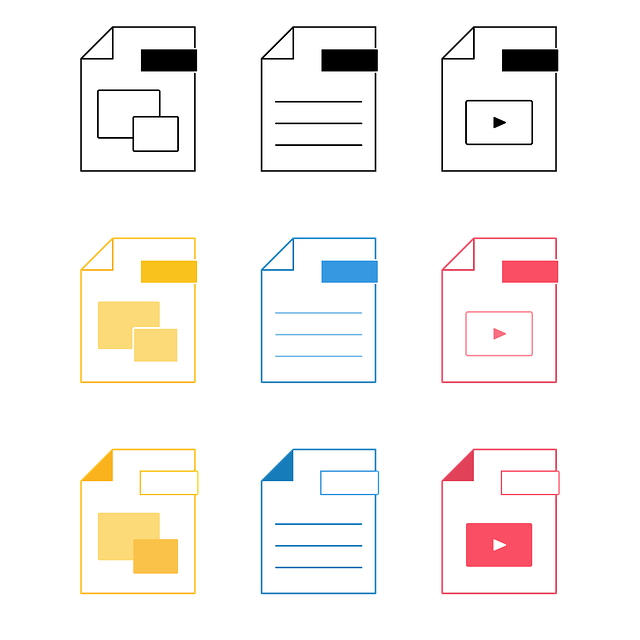International students studying in the UK face a significant challenge: accessing educational materials in their native language. To address this, there's growing demand for UK Educational Textbooks Translation Services. These professional services ensure equal opportunities by providing translated textbooks, allowing non-native English speakers to keep pace with peers and fully engage with their studies. By bridging linguistic gaps, these services foster inclusivity, enabling diverse perspectives and academic excellence without language barriers. Skilled translators preserve academic integrity, adapt content for readability, and consider cultural sensitivity, ensuring effective learning for international students globally. Advanced technology and digital transformation streamline processes, making education more accessible and democratizing knowledge.
International students studying in the UK face a unique challenge—accessing textbooks written primarily for native English speakers. This article delves into the significance of accessible textbooks, exploring current barriers and solutions for non-native English speakers in higher education. We discuss how professional translation services can revolutionize educational equality, outlining best practices and quality criteria for UK educational textbook translations. Additionally, we touch on legal and ethical considerations, including intellectual property and cultural sensitivity, and conclude with a look at technology’s role in shaping the future of global learning.
- Understanding the Challenge: The Significance of Textbook Accessibility for International Students in the UK
- The Current State: Barriers and Solutions for Non-Native English Speakers in Higher Education
- Professional Translation Services: A Game-Changer in Educational Equality
- UK Educational Textbook Translation: Processes and Best Practices
- Ensuring Quality: Criteria for Effective Textbook Translations
- Legal and Ethical Considerations: Intellectual Property and Cultural Sensitivity
- The Future of Accessible Education: Technology and Its Role in Global Learning
Understanding the Challenge: The Significance of Textbook Accessibility for International Students in the UK

International students studying in the UK often face a unique challenge—accessing educational materials in their native language. The UK, with its diverse student body, has seen an increasing demand for translated textbooks to cater to non-native English speakers. This is not just a convenience but a crucial aspect of equal opportunities in education. Students from various linguistic backgrounds should have unfettered access to the same resources and learning materials, ensuring they can keep pace with their peers and fully engage with their studies.
UK educational textbooks translation services play a vital role in bridging this gap. Professional translators ensure that complex academic concepts are accurately conveyed while maintaining the integrity of the original content. This accessibility fosters an inclusive learning environment, enabling international students to contribute their unique perspectives in discussions and excel in their academic pursuits without language barriers standing in their way.
The Current State: Barriers and Solutions for Non-Native English Speakers in Higher Education

In higher education, non-native English speakers face significant challenges in their academic pursuits, primarily due to language barriers. The current state of UK educational textbooks often serves as an obstacle for international students, hindering their ability to access knowledge and engage fully with their course materials. These students struggle to comprehend complex subjects when translated or interpreted inadequately.
One solution lies in specialized UK educational textbooks translation services. Professional translators with expertise in academic language can bridge this gap. They ensure that textbooks are accurately translated, preserving the original meaning and structure. This approach fosters inclusivity, allowing international students to keep pace with their peers and contribute meaningfully to discussions and assessments.
Professional Translation Services: A Game-Changer in Educational Equality

In today’s globalised world, ensuring educational equality for international students is more important than ever. One significant barrier to achieving this is language; however, professional translation services for UK educational textbooks can be a game-changer. These services not only facilitate access to quality education but also ensure that students from diverse linguistic backgrounds can fully engage with their course materials.
Professional translators, equipped with subject matter expertise and cultural sensitivity, play a crucial role in bridging the gap between languages. They meticulously translate textbooks, preserving academic integrity while adapting content for readability and comprehension across different languages. This level of professionalism is essential in maintaining educational standards and fostering an inclusive learning environment, ultimately enhancing the overall student experience.
UK Educational Textbook Translation: Processes and Best Practices

The translation of educational textbooks plays a pivotal role in facilitating access to quality education for international students, especially those studying in the UK. UK Educational Textbook Translation Services are specialized in converting academic content into accessible languages while maintaining the original intent and pedagogical value. This process involves several critical steps that ensure precision and cultural relevance.
Professional translators with subject expertise in various fields, such as science, humanities, or mathematics, first dissect the text to grasp its nuances. They then employ advanced translation software and tools to streamline the process, ensuring consistency and accuracy. Best practices include back-translation for quality control, where a native speaker from the target language revises the work, identifying any potential errors or misinterpretations. Additionally, including subject matter experts during the review phase guarantees that technical terminology is rendered accurately, making the translated textbooks reliable resources for international learners.
Ensuring Quality: Criteria for Effective Textbook Translations

When it comes to translating UK educational textbooks for international students, ensuring quality is paramount. The process requires a meticulous approach to capture the essence and intent of the original content accurately. UK Educational Textbook Translation Services often adhere to stringent criteria to guarantee effective translations that meet academic standards.
These criteria typically include fluency in both source and target languages, extensive subject knowledge, cultural sensitivity, and an understanding of educational terminology. Professional translators must also consider the audience’s needs, ensuring the translated text is accessible and relevant for students from diverse linguistic backgrounds. Proper quality assurance procedures, such as peer review and editing, play a vital role in refining the translation and making it an invaluable resource for learners worldwide.
Legal and Ethical Considerations: Intellectual Property and Cultural Sensitivity

When translating educational materials, especially for international students, navigating legal and ethical considerations is paramount. In the UK, educational textbooks are protected by intellectual property (IP) laws, ensuring authors’ and publishers’ rights are respected. Any translation of these texts must comply with copyright regulations, which vary across jurisdictions but generally prohibit unauthorized reproduction or adaptation. Students and institutions relying on UK educational textbooks translation services should engage professional translators who understand these legal boundaries to avoid potential IP infringements.
Cultural sensitivity is another critical aspect that translates directly into the realm of textbook translation. Ensuring that cultural nuances, idiomatic expressions, and local references are accurately conveyed is essential for effective learning. Translators must go beyond literal interpretations to capture the essence of the content while adapting it to the target culture. This involves understanding cultural contexts, avoiding stereotypes, and preserving the original text’s integrity to foster an inclusive learning environment for international students in the UK.
The Future of Accessible Education: Technology and Its Role in Global Learning

In today’s interconnected world, education knows no borders. International students are increasingly seeking opportunities in various educational institutions across the globe. To ensure equal access to quality learning, UK Educational Textbook Translation Services play a pivotal role, bridging the language gap and making knowledge truly global. Technology is transforming the landscape of education, offering innovative solutions for accessible learning on an international scale. Advanced translation software, machine learning algorithms, and artificial intelligence are not just enhancing but revolutionizing textbook translation services.
These tools enable precise, efficient, and culturally sensitive translations, ensuring that international students receive materials tailored to their linguistic needs. With the help of technology, UK educational institutions can streamline their processes, reduce costs, and provide up-to-date resources faster. This digital approach not only facilitates global learning but also fosters a diverse and inclusive academic environment, where students from all corners of the world can contribute and thrive.
In conclusion, translating textbooks for international students in the UK is no longer a mere option but an essential step towards equal access to quality education. As we’ve explored, understanding the challenges faced by non-native English speakers and implementing effective translation processes, with a focus on legal and ethical considerations, can significantly enhance learning outcomes. By leveraging professional translation services and embracing technology, the UK can continue to foster inclusive educational environments for students from around the globe, ensuring that everyone has the opportunity to thrive in their academic pursuits. This commitment to accessible education is key to shaping a more equitable future for global learners.
